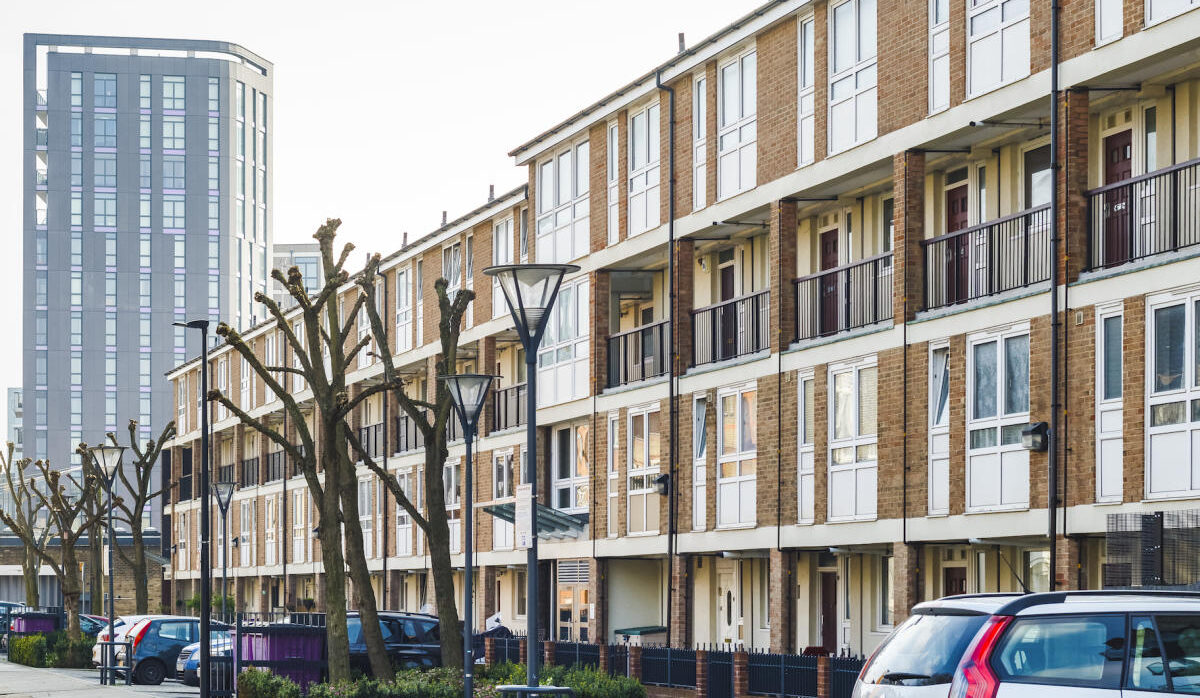What does the Spring Budget mean for the housing market?
As household budgets are squeezed with higher mortgage rates and cost of living pressures, this was a budget that focused on stimulating the economy and jobs, says Richard Donnell.
As household budgets are squeezed with higher mortgage rates and cost of living pressures, this was a budget that focused on stimulating the economy and jobs, says Richard Donnell.
This week’s Budget had little direct impact on the housing market. Stamp duty is unchanged and there are no big changes for landlords, other than a lower level of tax free gains before paying capital gains tax.
The Chancellor has focused the Budget on stimulating the economy and jobs, encouraging as many people as possible to keep working and help fill the UK’s 1m job vacancies.
Focusing on economic growth and jobs ultimately supports the housing market as the health of the housing market is directly linked to the health of the economy.
Housing sales and prices tend to stagnate and fall when the economy is doing badly and unemployment is rising, while the opposite is true when the labour market is strong and post-tax household incomes are rising.
The tax burden has been rising for those on mid to higher incomes, meaning there has been no growth in post tax disposable incomes over the last 2 years.
Household budgets are also being squeezed by higher living costs and many will welcome the Budget announcement of a 3 month extension to the support for home energy bills.
Higher mortgage rates have added further pressure for new home buyers and those remortgaging. It’s welcome news that a very high proportion of those with mortgages are on 5-year fixed rate deals but as they come off these deals the increased monthly payments will hit monthly budgets.
Lenders and brokers are working with those who face material increases in mortgage payments to come up with tailored solutions to ease the pressure.
Mortgage rates have fallen back to 4.5% for new home buyers. This is well down on the 6% high’s seen at the end of last year but remains more than double mortgage rates a year ago.
The housing market can withstand higher mortgage rates and we have consistently argued that sub-5% mortgage rates would not lead to big price falls and this is bearing out.
However, new buyers have 20% less buying power than a year ago. This doesn’t mean prices will fall by this much, but people will look to buy smaller homes or move to areas that offer better value for money. Others may look to inject more equity into home purchases where funds are available.
Overall, the best way to offset higher borrowing costs - and housing costs in general including rents - is to help boost household incomes, which no-one would argue against.
As a result of weaker buying power, we have seen a gentle shift in demand towards flats as the early home buyers of 2023 sought better value for money.
We expect mortgage rates to stay in the 4-5% range over 2023, so those who would like to move should not expect rates to move much lower and plan accordingly.
The big challenge in the housing market is affordability, especially for those who rent or have small deposits to put towards a home. Rents are rising fast, up 11%, which is well ahead of earnings growth, which is currently 6.7%.
Many younger households looking to buy and renters of all ages are concerned about the lack of supply and scale of recent rent increases. This is all a result of low rental supply and a lack of growth in the size of the private rented sector over the last 6 years.
As well as focusing on jobs and growth, it’s important that the government continues to focus on growing housing supply through the development of new homes of all tenures. Only by improving supply can we ease the affordability pressures felt across the market.
How does the Spring Budget affect household budgets?
Inflation has peaked and is set to fall to 2.9% by the end of 2023, said Chancellor Jeremy Hunt in his Spring Budget, as he unveiled plans for help with fuel bills, childcare costs and pensions.
“The UK will not enter a technical recession this year,” said Chancellor Jeremy Hunt in his Spring Budget statement.
The UK economy is set to contract by 0.2% in 2023, before heading into a growth rate of 1.8% in 2024.
The unemployment rate is also expected to be less severe this year, with unemployment rising by less than 1% to 4.4%.
And in welcome news, inflation has peaked, with the Office for Budget Responsibility reporting that it will fall back to 2.9% by the end of 2023.
So how does the Spring Budget affect household budgets?
Free childcare for all under 5s
Acknowledging that the UK has one of the most expensive childcare systems in the world, Hunt pledged free childcare for all under 5s.
‘Nearly half of non-working mothers say they’d prefer to work if there was suitable childcare', said Hunt.
'But for many a career break becomes a career end.’
In eligible households where all adults are working at least 16 hours a week, 30 hours of free childcare will be provided for children aged 9 months or over, starting when maternity or paternity leave ends.
The plan is set to be introduced in stages:
-
From April 2024, working parents of 2-year-olds will receive 15 hours of free childcare
-
From September 2024, this will be expanded to all children aged 9 months or over
-
From September 2025, every parent will have access to 30 hours of free childcare a week
How will it happen?
-
Childminders are to be offered incentive payments of £600 for signing up to the profession, rising to £1,200 for those who sign up through an agency
-
Nurseries will also be given more flexibility in how they operate, with minimum child to staff ratios raised from 1 to 4 to 1 to 5 - as is currently the case in Scotland
-
Parents on Universal Credit who want to move into work or increase their hours will have their childcare costs paid upfront by the government, with £951 allocated for one child and £1,630 allocated for two
By September 2026, the government plans for all schools to offer wraparound care from 8am to 6pm.
Energy price guarantee to remain for a further 3 months
The energy price guarantee will remain at £2.5K for the next 3 months, ahead of an expected fall in energy prices in July, saving the average family £160.
And for the 4m households on pre-payment meters, charges will be brought inline with comparable direct debit charges.
“The energy premium paid by our poorest households is coming to an end.,” said Hunt.
Hunt also said the UK needs to focus on ‘domestic sources of energy that fall outside Putin or any autocrat’s control.'
He added: ‘Electricity generated by renewables has increased from 10% to 40% but we need another critical source of cheap and reliable energy - and that is nuclear.
‘It’s vital to meet our Net Zero obligations.’
So nuclear energy will now be classed as environmentally sustainable, giving it access to the same investment incentives as renewable energy.
Fuel duty frozen
The planned 11p rise in fuel duty will be postponed as ‘now is not the right time to up-rate fuel duty inline with inflation’.
So for a further 12 months the government will maintain the 5p cut and freeze fuel duty.
Employment
There are currently 1m vacancies in the economy and 7m adults of working age who are not in work.
Hunt said the government wants to remove the barriers that stop people who want to from working.
In a reform of disability benefits, Hunt said the government plans to abolish the work capability assessment, so that claimants can keep their benefits and still work.
He also announced plans for those aged over 50, ‘experienced workers’, to encourage the 3.5m people who are of pre retirement age but who are not currently part of the labour force back to work.
Pensions
The pensions annual tax-free allowance is set to be increased by 50% from £40K to £60K, while the lifetime allowance will be abolished.
The government believes this reform will stop over 80% of NHS doctors from receiving a tax charge.
Is a regeneration project planned near you?
Hailing Canary Wharf and Liverpool Docks as ‘2 outstanding regeneration projects that transformed the lives of thousands of people’, Hunt announced a further 12 new investment zones for:
-
West Midlands
-
Greater Manchester
-
Liverpool City
-
North East
-
South Yorkshire
-
Tees Valley
-
West Yorkshire,
With 4 planned for
-
Scotland
-
Wales
-
Northern Ireland
Transport
A further 8.8bn us set to be invested in sustainable transport, while the government increased the ‘pothole pot’ by £200m to £700m, with £320m allocated to Scotland, £180m for Wales and £130m for Northern Ireland.
And finally, 'the Brexit pubs guarantee'
For ‘the great British pub’ Hunt increased draught relief, meaning the duty on alcohol will be up to 11 pence lower than that sold in supermarkets.
‘British ale is warm but the duty on a pint is frozen,’ he said.
Key takeaways
- 30 hours of free childcare a week from September 2025
- Energy Price Guarantee extended for 3 months
- Fuel duty frozen for 12 months
- Pensions: annual tax-free allowance increased by 50% from £40K to £60K and the lifetime allowance to be abolished


